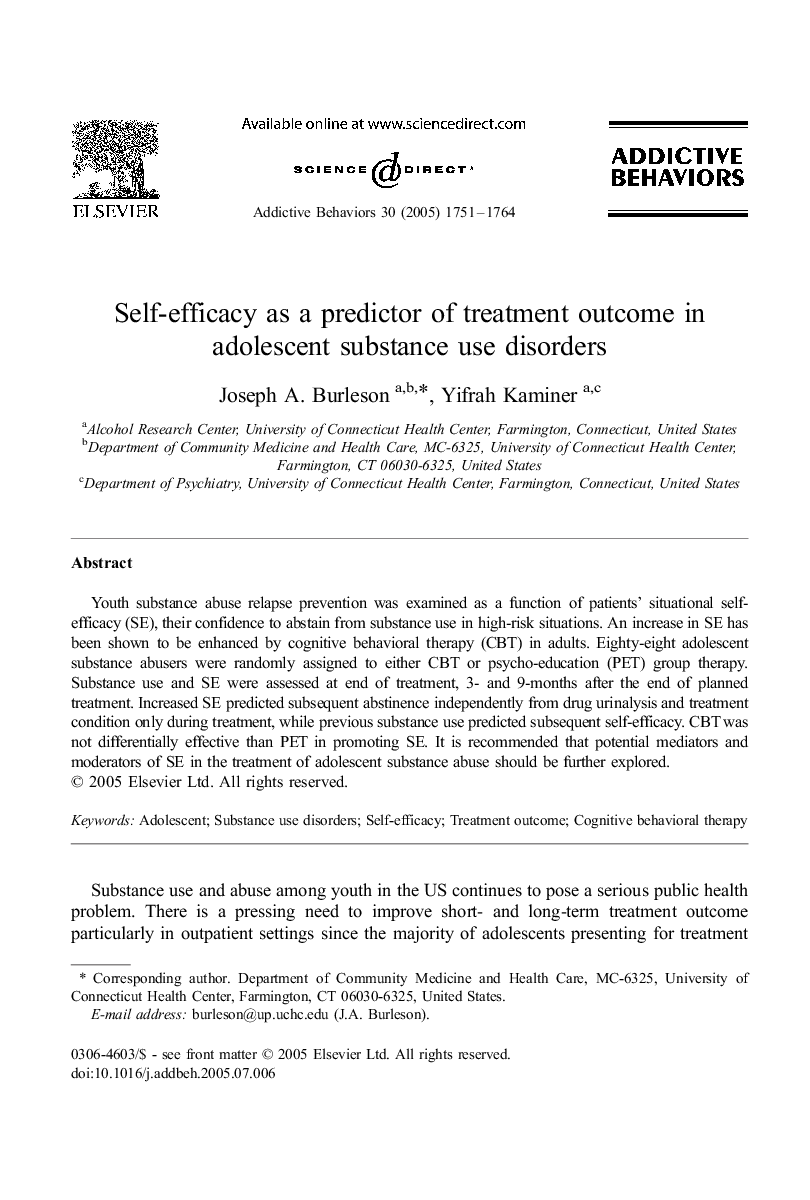| Article ID | Journal | Published Year | Pages | File Type |
|---|---|---|---|---|
| 9719907 | Addictive Behaviors | 2005 | 14 Pages |
Abstract
Youth substance abuse relapse prevention was examined as a function of patients' situational self-efficacy (SE), their confidence to abstain from substance use in high-risk situations. An increase in SE has been shown to be enhanced by cognitive behavioral therapy (CBT) in adults. Eighty-eight adolescent substance abusers were randomly assigned to either CBT or psycho-education (PET) group therapy. Substance use and SE were assessed at end of treatment, 3- and 9-months after the end of planned treatment. Increased SE predicted subsequent abstinence independently from drug urinalysis and treatment condition only during treatment, while previous substance use predicted subsequent self-efficacy. CBT was not differentially effective than PET in promoting SE. It is recommended that potential mediators and moderators of SE in the treatment of adolescent substance abuse should be further explored.
Keywords
Related Topics
Life Sciences
Neuroscience
Behavioral Neuroscience
Authors
Joseph A. Burleson, Yifrah Kaminer,
